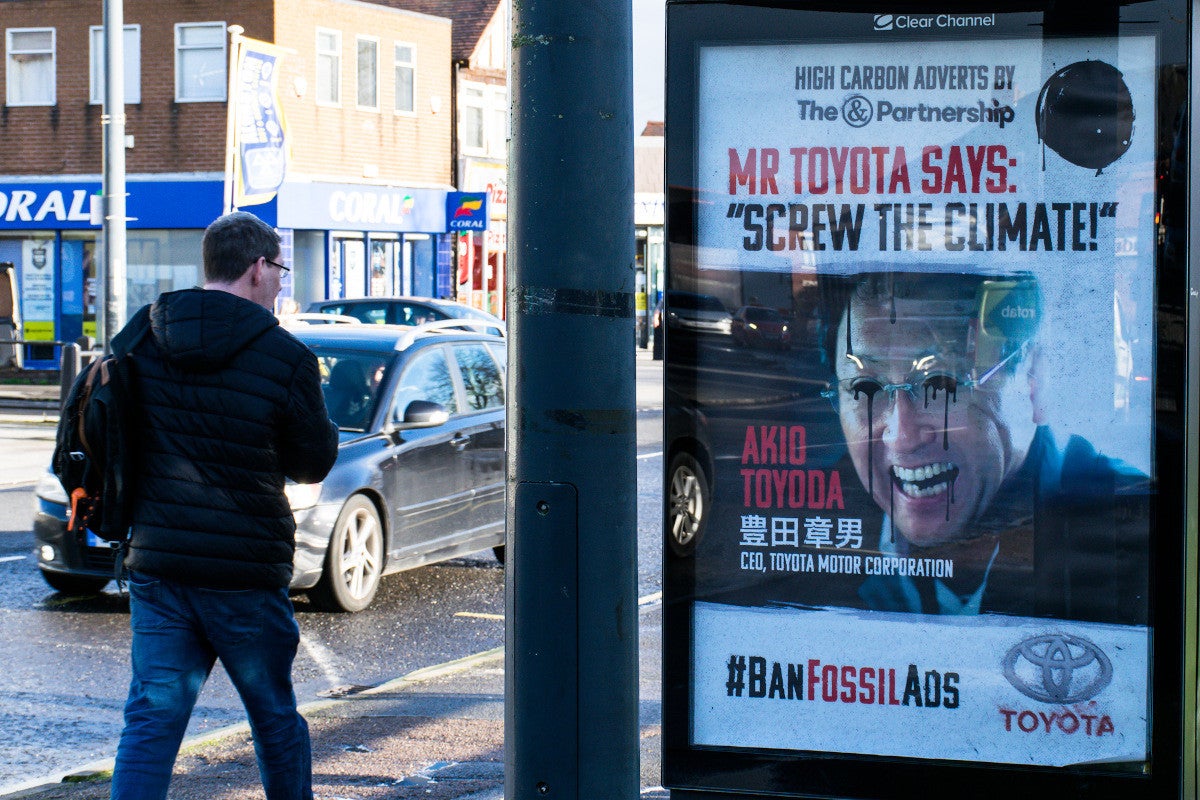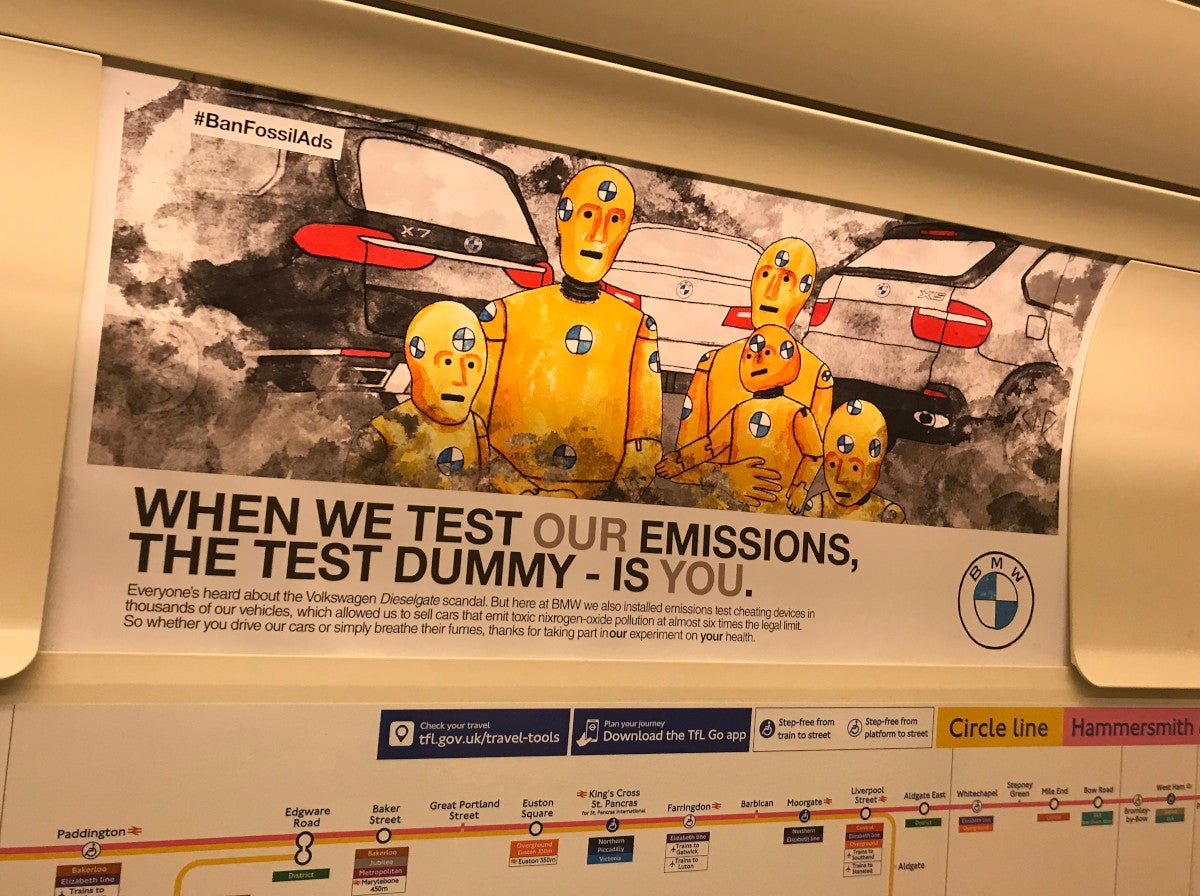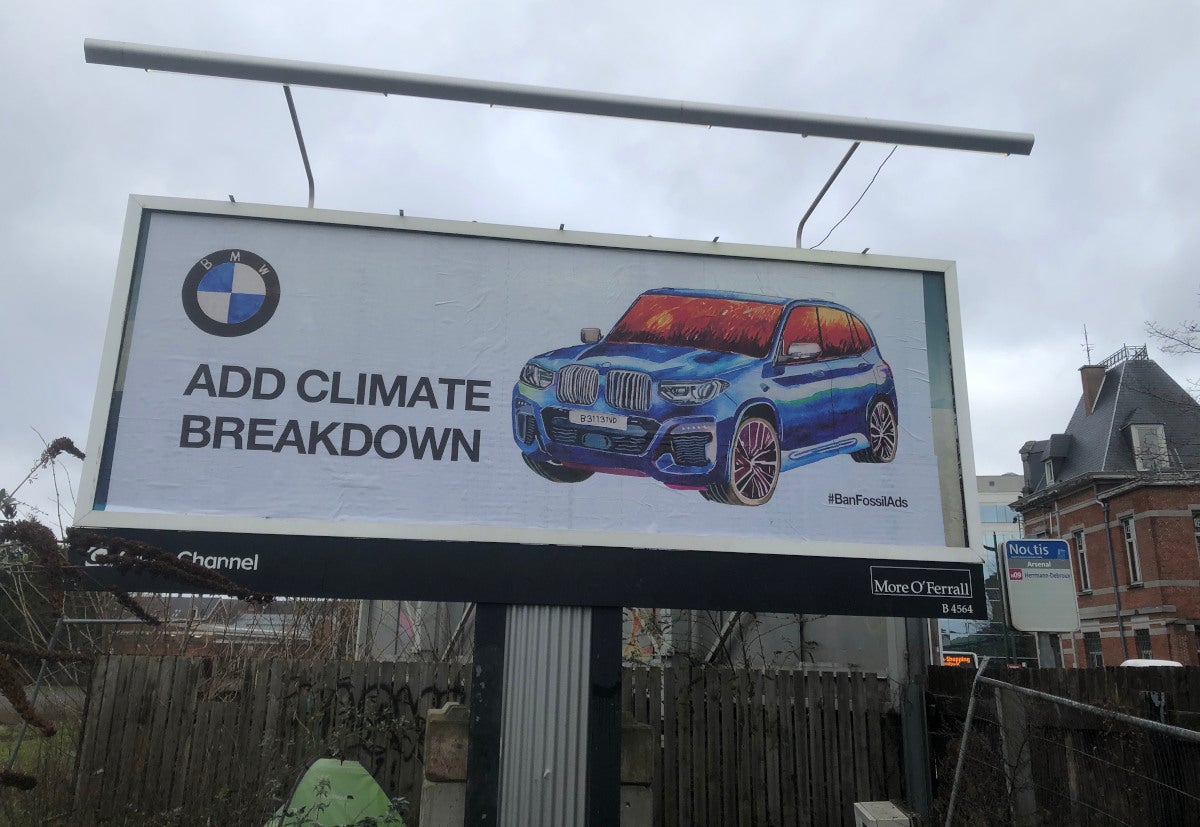Green protestors ‘hijack’ Toyota billboards across Europe
The climate protestors pasted subversive posters on billboards across Europe
Your support helps us to tell the story
From reproductive rights to climate change to Big Tech, The Independent is on the ground when the story is developing. Whether it's investigating the financials of Elon Musk's pro-Trump PAC or producing our latest documentary, 'The A Word', which shines a light on the American women fighting for reproductive rights, we know how important it is to parse out the facts from the messaging.
At such a critical moment in US history, we need reporters on the ground. Your donation allows us to keep sending journalists to speak to both sides of the story.
The Independent is trusted by Americans across the entire political spectrum. And unlike many other quality news outlets, we choose not to lock Americans out of our reporting and analysis with paywalls. We believe quality journalism should be available to everyone, paid for by those who can afford it.
Your support makes all the difference.Climate activists ‘hijacked’ 400 advertising billboards and bus stops in Belgium, France, Germany and England to call out Toyota and BMW’s ‘duplicitous’ advertising.
The protestors pasted subversive posters on billboards across Europe to highlight the adverts by Toyota and BMW.
They claim Toyota and BMW’s adverts emphasising their Electric Vehicle (EV) range, despite both manufacturers are still heavily invested in selling polluting combustion engine vehicles, according to a Greenpeace report.
However, Toyota claims it has made strong commitments to achieving carbon neutrality in Europe by 2040 and globally by 2050.
The billboards, installed by climate activists from the Subvertisers International, Brandalism and Extinction Rebellion, appear at bus stops, advertising billboards and tube advertising spaces in London, Berlin, Stuttgart, Paris, Nantes, Brussels, Ghent, Bristol, Derby, Glasgow, Norwich, Brighton, Exeter, and Reading.

The activists are demanding more robust policy from governments to prevent misleading green claims from big polluters and call for tobacco-style legislation to end adverts for high carbon products.
Tona Merriman, a spokesperson for Brandalism, described the original adverts as ”duplicitous.”
He added: “Toyota and BMW use slick marketing campaigns to promote over-sized SUV models that clog up urban neighbourhoods. Electric SUVs are no solution – they’re too big for most parking spaces and their tall bumper size and excessive weight present an increased risk to pedestrians, especially children, involved in road collisions.”

A Toyota spokesperson said: “In Europe, Toyota has consistently overachieved the fleet CO2 emission targets put in place by the EU – in fact, we have been a leader in this area for twenty years. Going forward, Toyota is committed to reducing Co2 emissions from its new vehicle sales in Europe by 100% from 2035, which means all our vehicles will be zero-emission – and more than 50% by 2030.
“During the transition period to 2035, we firmly believe that multiple technology solutions are necessary to lower carbon emissions as much as possible and as soon as possible. Ultimately, the market will be zero-emission vehicles (ZEV), whether they are battery electric vehicles (BEV), hydrogen fuel cell electric vehicles (FCEV) or other zero-emission technologies.

“Currently, not everyone has access to ZEVs due to lack of infrastructure or other market barriers.
“We believe that giving people access to multiple technologies is a more inclusive path towards carbon neutrality.”
A BMW spokesperson added: “The BMW Group completely rejects the factually incorrect allegations made by the Brandalism campaign.
“Sustainability is a fundamental part of the BMW Group’s corporate strategy. The company is committed to the goal of climate neutrality by 2050 at the latest and is following a scientifically validated and transparent path along the entire value chain.
“By 2030, at least 50 per cent of the BMW Group’s global sales volume is to be achieved with fully electric vehicles. Currently, the company is taking concrete measures to reduce the lifecycle carbon footprint of its products by 40 per cent by 2030 compared to 2019 levels.
“Our position has always been clear: Any deliberate, targeted procedure for unlawful manipulation of exhaust emissions would not be acceptable to us. There are and were no activities or technical measures at the BMW Group to influence the test mode for recording emissions in a targeted way.”

Join our commenting forum
Join thought-provoking conversations, follow other Independent readers and see their replies
Comments